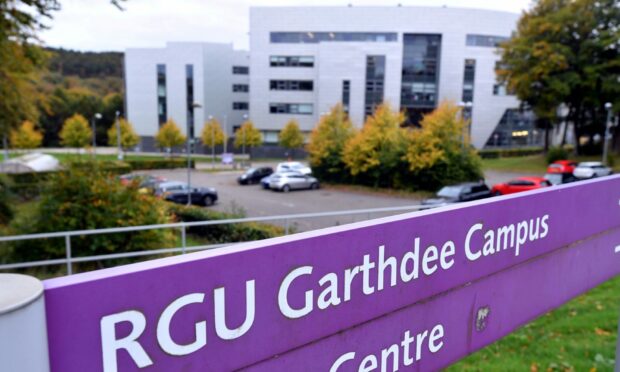Many people will not have heard of evidence-based practice (EBP).
But it has been in use in healthcare for decades.
And human resources (HR) professionals think it can play an increasingly important role in today’s ever-changing business world.
As a result, it is now part of the new look MSc human resource management degree at Robert Gordon University’s Aberdeen Business School (ABS).
Lecturers there believe EBP, which basically involves making sure the best available evidence is used in making decisions, can benefit organisations in a range of sectors.
Susan Reid Elder and Moira Nikodem, of ABS, are convinced EBP principles and less reliance on a single evidence source will help business leaders to make better decisions.
The two lecturers spoke to The Press and Journal about EBP and how it can benefit organisations and the people working in them.
Ms Reid Elder said: “Throughout working society we are seeing considerable unease, and in some sectors major discontent, which is leading to workers taking action.
Employees ‘no longer afraid’
“Whether that be high-profile industrial disputes, smaller-scale strikes or the more modern trend of ‘quiet quitting’, it’s clear employees are no longer afraid to take matters into their own hands when it comes to a decreasing level of satisfaction at work.
“Although recent strike action is heavily related to wider concerns around soaring inflation and the cost-of-living crisis, there is also heightened debate around working conditions and how HR professionals are helping organisations to address problems.”
We’re now seeing decisions having to be made in an increasingly volatile and complex environment.”
She added: “We understand the HR remit is important and broad, including recruitment, training, reward, and diversity and inclusion.
“One critical element of the HR role, though, is decision-making, both at a transactional and strategic level.
“We’re now seeing decisions having to be made in an increasingly volatile and complex environment, characterised by a relentless pace of change.
“So, rather than relying on the latest trends, business books or consultants’ jargon, practical tools and skillsets are needed to help us decipher and make sense of the vast amount of information we deal with, in order to better serve employees.
“This is where EBP is becoming increasingly important.”
‘Why isn’t it widespread?’
EBP involves systematic appraisal of the best available evidence to inform effective decision-making.
Ms Nikodem explained: “Rather than relying on one source of evidence, EBP involves a six-step process, critical thinking and the combination of four evidence sources.
“These are organisational data, stakeholder perspectives, expert opinion and academic research.
“It sounds straightforward and a natural system to implement, so why isn’t it widespread?”
Is it really best practice?
She added: “We’ve been exploring EBP, or the lack of it, in organisations and still find that many introduce initiatives that are being promoted in books or reports without fully checking the evidence is there to support the claims being made.
“There is a body of research that highlights a significant gap between academic evidence and so-called ‘best practice’ in the workplace.”
One example cited by the lecturers is mental health aid first aid training (MHFA).
Ms Nikodem added: “While it is being implemented with good intentions to solve a very real and important issue, the effectiveness of intervention is questioned in some research.
“A report from the Health and Safety Executive suggests ‘there is limited evidence MHFA training leads to sustained improvement in the ability of those trained to help colleagues experiencing mental ill‐health’.
“It also says there’s ‘no evidence the introduction of MHFA training has improved the organisational management of mental health in workplaces’.”
Another report, this time from the Institute for Employment Studies, says the evidence to support MHFA “remains weak”.
Ms Reid Elder said: “This is because organisations are hastily implementing ‘solutions’ without working out what the root problem is.
“We’ve also found there’s mixed evidence of success in unconscious bias training (UBT).
“Many employers introduced UBT to proactively eliminate discrimination in the workplace, however, following research some organisations are moving away from it.
“For example, in 2020 many UK Government departments discontinued standalone UBT because their research found little evidence it had positive impacts on behaviours or long-term attitudes.”
We’re not suggesting good decision-making never takes place.”
She continued: “The Equality and Human Rights Commission goes further, suggesting ‘there is potential for back-firing effects when UBT participants are exposed to information that suggests stereotypes and biases are unchangeable’.
“Such guidance on training courses may not only activate and reinforce unhelpful stereotypes, but also cause negative reactions and worsen biases.
“While we’re not suggesting good decision-making never takes place, we do believe that by applying EBP principles we can ensure managers make decisions that are more likely to have the desired final outcome.”
Boosting HR knowledge
Ms Nikodem added: “For now, many decisions are only ticking the first box of implementation.
“At RGU we’re teaching the next generation of HR practitioners the knowledge and skills to apply EBP in the workplace, while simultaneously conducting research in the area to help improve knowledge.
“Our approach is pragmatic, with a view to ensuring research is of value to the HR community as well as organisations more widely.”
More about Robert Gordon University’s HR management course
Aberdeen Business School (ABS) at Robert Gordon University has run a human resource (HR) management course since 1980.
It offers both a postgraduate qualification and Chartered Institute of Personnel and Development (CIPD) Professional Level 7 membership.
Principal lecturer Lisa Collie said: “We’re proud of our 43 years of uninterrupted CIPD accredited course delivery – a crucial professional membership that is generally seen as essential for a career in HR management across the country.
“We were also delighted to be able to offer the UK’s first online postgraduate course to also be CIPD accredited.
“These landmarks are not only significant for the home market but also for our international students, as the importance of CIPD accreditations continues to grow globally.”
Ms Collie added: “Continuing to evolve has been a staple of Aberdeen Business School’s history which, combined with the consistency in offering accredited, reputable qualifications, has helped the school win numerous accolades in recent years.”
HR has evolved over the years and today is usually seen as a strategic partner in a business, whereas the historic focus tended to be operational.
It can add real strategic value to an organisation, whatever the size and context of the operating environment.
Hot topics
Ms Collie said current HR hot topics included evidence-based practice, equality diversity and inclusion, digitalisation and HR analytics and change management.
HR’s ongoing evolution and an update to CIPD’s professional framework led ABS to recently revamp its MSc HR management course to include all of the above topics.
The course is taught by a specialist team with a wealth of practical HR and academic experience.






Conversation